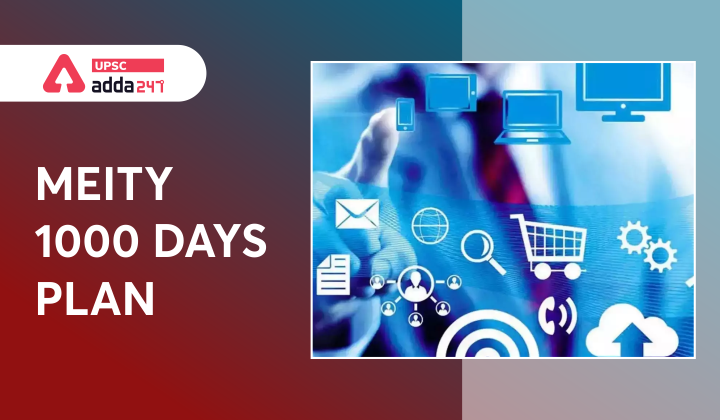Table of Contents
Relevance
- GS 3: Indian Economy and issues relating to planning, mobilization, of resources, growth, development and employment.
Context
- Recently, Ministry of Electronics and IT (MeitY) has framed a 1,000-day agenda, to make India a $1 trillion digital economy over the next few years.
Key focus areas
- The plan focuses on how to expand the digital economy piece.
- As per the new agenda, the aim is to make laws governing the tech, social media and cyberspace “simple and world-class.”
- High-tech areas and developing skills: The areas identified include AI, Cyber Security, Super Computing, Semiconductors, Blockchain and Quantum Computing.
- Skills and talent development: There has been a surge in the need for talent post-Covid-19 since the digitalisation efforts of companies have gone up.
- Employment: The plan aims to create 1 crore skilled IT manpower in 3 years.
- Semiconductors manufacturers and high value-added products: The current global shortage of chips has built a strong case for India to fast-track its own semiconductor manufacturing plans.
What is a digital economy?
- The digital economy refers to a broad range of economic activities that use digitized information and knowledge as key factors of production.
- The internet, cloud computing, big data, fintech, and other new digital technologies are used to collect, store, analyze, and share information digitally and transform social interactions.
- The digital economy has the potential to radically change the social environment and economic activities of the world.
- It is already experiencing high growth, rapid innovation, and broad application to other economic sectors.
Benefits
- The digitization of the economy creates benefits and efficiencies as digital technologies drive innovation and fuel job opportunities and economic growth.
- The digital economy also permeates all aspects of society, influencing the way people interact and bringing about broad sociological changes.
- Financial technologies have also given rise to new ways of delivering financial services thus promoting financial inclusion in many developing countries.
- Digitized, networked, and intelligent information and communications technologies (ICTs) enable modern economic activities to be more flexible, agile, and smart.
Challenges
- Despite the vast opportunities presented by the digital economy, the developing countries have not yet fully realized the potential of harnessing digital technology for sustainable development, due to factors like
- poor ICT infrastructure,
- inadequate skills development,
- and socioeconomic barriers




 TSPSC Group 1 Question Paper 2024, Downl...
TSPSC Group 1 Question Paper 2024, Downl...
 TSPSC Group 1 Answer key 2024 Out, Downl...
TSPSC Group 1 Answer key 2024 Out, Downl...
 UPSC Prelims 2024 Question Paper, Downlo...
UPSC Prelims 2024 Question Paper, Downlo...





